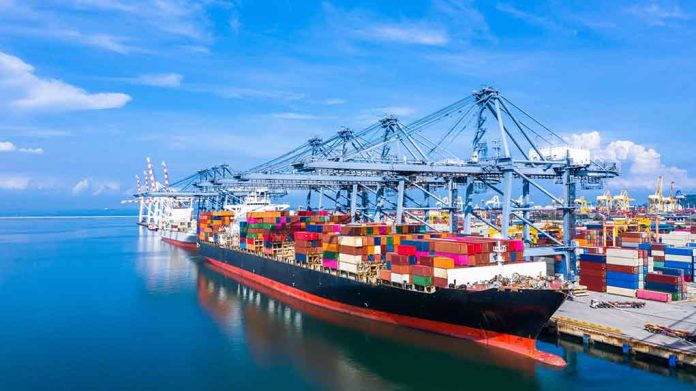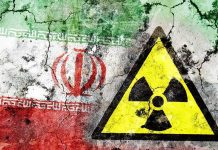
Canada’s decision to ratify Britain’s CPTPP membership could unlock trade barriers worth billions, setting the stage for deepened economic ties between the two nations amid tense global trade dynamics.
Key Takeaways
- Canada plans to introduce legislation this autumn to ratify Britain’s accession to the CPTPP, a trade bloc with a combined GDP of £12 trillion
- The UK joined the CPTPP in 2024, but still needs formal approval from Canada and Mexico to unlock full benefits
- A joint task force will address longstanding trade disputes over beef and cheese while enhancing cooperation in technology and AI
- The UK Prime Minister plans to meet with President Trump at the upcoming G7 summit to finalize a US-UK trade deal
Canada’s Strategic Ratification of the UK’s CPTPP Membership
Canada’s commitment to ratify Britain’s membership in the Comprehensive and Progressive Agreement for Trans-Pacific Partnership marks a significant advancement in international trade relations. The Canadian government is set to introduce the necessary legislation in parliament this autumn, which would formally approve the UK’s accession to the 11-nation trade bloc that already includes Australia, Brunei, Chile, Japan, Malaysia, New Zealand, Peru, Singapore, and Vietnam. While Britain officially joined the CPTPP in 2024, it still requires formal approval from Canada and Mexico to fully activate its membership privileges and access the “huge benefits” the agreement promises.
The CPTPP represents a massive economic opportunity, encompassing countries with a combined GDP of £12 trillion. For Britain, ratification would mean lower import levies and fewer barriers in critical sectors including financial services, manufacturing, and food and drink exports. Downing Street has emphasized that this agreement will deliver “huge benefits” to British businesses and consumers alike, opening new markets and creating economic opportunities across multiple industries that have been seeking expanded international trade footprints since Brexit.
Resolving Bilateral Trade Disputes
Beyond the CPTPP framework, Canadian and British leaders are working to revive a stalled bilateral trade agreement that has faced significant obstacles. A “joint task force” will be established to address contentious issues that have hindered previous negotiations, particularly regarding beef and cheese trade. British concerns about hormone-treated beef imports from Canada have been a significant sticking point, while Canada has raised issues about cheese import levies. Despite these challenges, both nations appear committed to finding workable solutions that respect their respective food standards and trade priorities.
“The task force will also look to make progress on the wider UK-Canada Free Trade Agreement,” Downing Street announced, signaling a renewed commitment to overcoming past obstacles.
The UK government has emphasized that it will maintain its food standards “red lines” in all trade agreements, similar to its approach in recent deals with the United States, India, and the European Union. This principled stance on food safety and quality reflects the UK’s commitment to protecting consumer interests while expanding trade opportunities. The task force represents a pragmatic approach to finding common ground without compromising on essential standards, potentially creating a template for resolving similar disputes with other trading partners.
Expanding Technology and AI Cooperation
A particularly promising aspect of the renewed UK-Canada relationship is the focus on technological cooperation, especially in artificial intelligence. The two countries have agreed on a partnership to strengthen AI safety collaboration between their respective research institutes, recognizing the strategic importance of this rapidly evolving field. Former Bank of England governor Mark Carney, who has been engaged in discussions with UK Prime Minister Sir Keir Starmer, emphasized that these shared technological ventures represent the “foundation of prosperity” for both nations going forward.
“Canada and the United Kingdom, of course, share history – we share values, we share governance,” Mr. Carney noted, highlighting the natural alignment that makes technology cooperation particularly promising.
This technological partnership comes at a critical time as both nations seek to establish leadership positions in AI development while ensuring appropriate safety and ethical frameworks. The collaboration will likely extend beyond research to include commercial applications and regulatory approaches, potentially giving both countries a competitive edge in the global AI landscape while addressing concerns about responsible innovation and security implications of advanced technologies.
G7 Summit and Global Strategic Positioning
The timing of these trade discussions is strategically significant, taking place just before the G7 summit in Kananaskis, where global economic partnerships and security issues will dominate the agenda. Sir Keir Starmer is scheduled to meet with President Trump to finalize a US-UK trade deal, highlighting Britain’s multi-pronged approach to building international economic relationships. The UK’s deepening ties with Canada provide a valuable counterbalance to potential challenges in US relations, particularly given President Trump’s well-known stance on tariffs and trade deficits.
“For years, we’ve worked together as Commonwealth members, as independent, democratic sovereign countries, working alongside each other on issues of security, defence, trade, the economy, you name it,” Sir Keir emphasized, underscoring the historical foundation of UK-Canada relations.
The G7 summit will also address critical global security challenges, including Middle East conflicts and the ongoing war in Ukraine, with Ukrainian President Volodymyr Zelenskyy expected to attend. Sir Keir plans to use this international platform to promote restraint and de-escalation following recent tensions between Iran and Israel. By strengthening economic ties with Canada while engaging constructively with the US and other G7 partners, Britain is positioning itself as a key player in international trade and security discussions at a time of significant global uncertainty.



